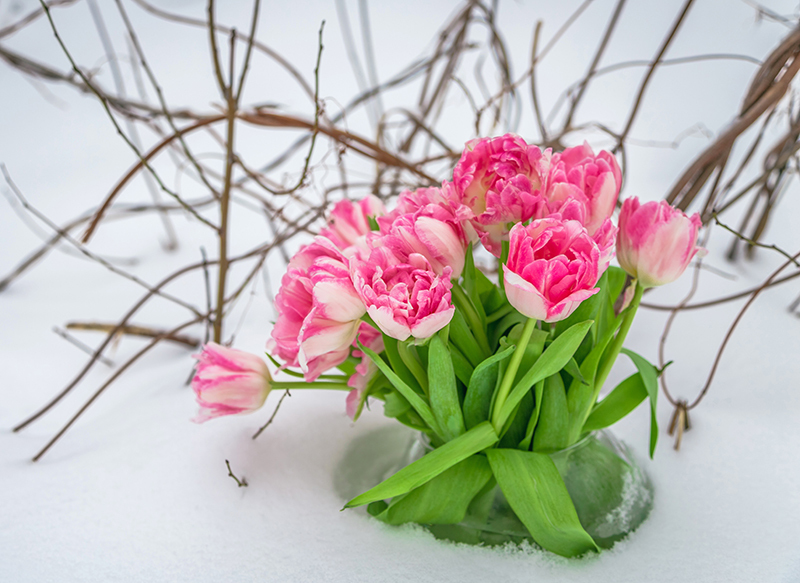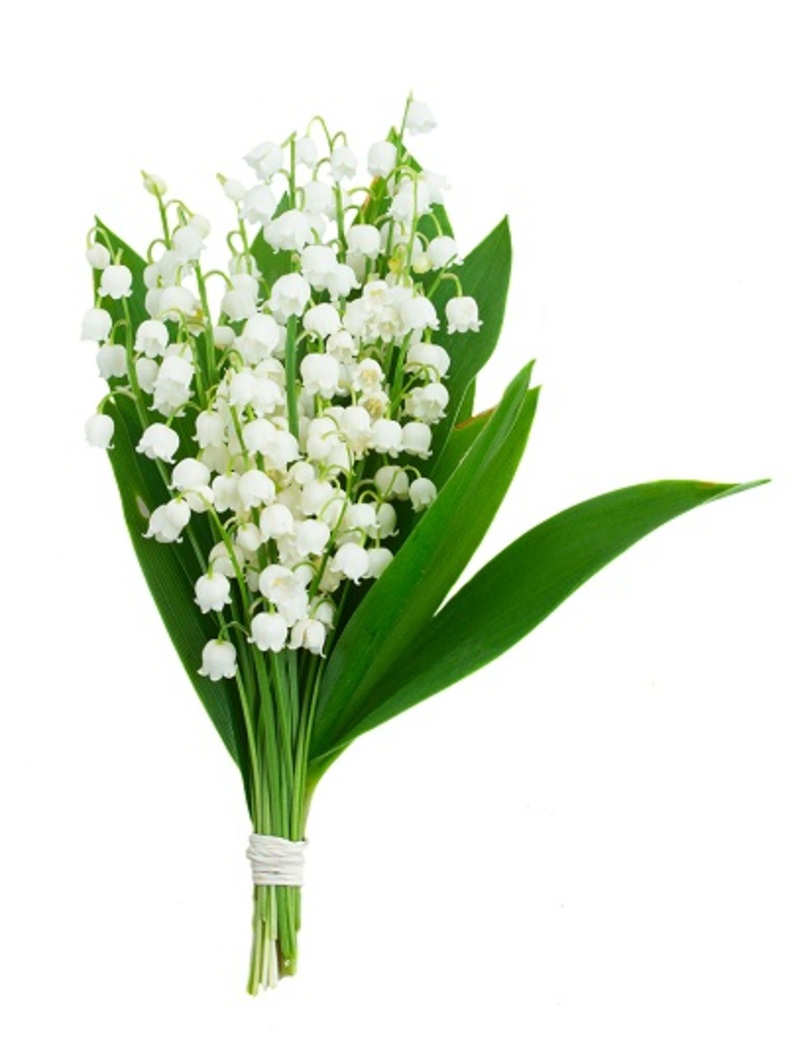Learn What Your Birth Flower Expresses About Your Nature
Posted on 27/08/2025
Learn What Your Birth Flower Expresses About Your Nature
Have you ever wondered if your birth flower holds deeper meaning about your personality and inner self? Just like zodiac signs or birthstones, flowers associated with each birth month offer a unique lens through which you can understand your own character traits. Let's delve into the world of birth flowers and unravel what they might reveal about your nature.

What Are Birth Flowers?
Each month of the year is represented by one or more flowers, known as birth month flowers. This tradition stems from ancient customs where flowers symbolized specific qualities and personality traits. By learning what your birth flower expresses about your nature, you gain a new perspective on your strengths, values, and even your hidden desires.
The Significance of Birth Flowers
For centuries, flowers have been used to convey messages and symbolize emotions. From love and happiness to remembrance and friendship, flowers speak a universal language. Birth flowers take this symbolic communication a step further, acting as botanical totems that reflect attributes commonly associated with people born in that month.
- They provide a symbolic representation of personality traits.
- They can be integrated into meaningful gifts for birthdays.
- Birth flowers carry cultural, historical, and emotional significance.
Discover the Unique Meanings of Each Birth Month Flower
January: Carnation & Snowdrop
- Carnation: Known for their resilience in winter, carnations symbolize devotion, admiration, and love. If your birth flower is a carnation, you are likely determined, loving, and warm-hearted, with an unwavering spirit that brightens up the gloomiest times.
- Snowdrop: This delicate white flower represents hope and rebirth. January-borns with the snowdrop as their birth flower exhibit sincerity and optimism, often being the first to extend support and encouragement to others.
February: Violet & Primrose
- Violet: Embodying modesty, faithfulness, and humility, violets signify a gentle soul. People with this birth month flower are known to be loyal, humble, and deeply intuitive, placing great value on trust and long-lasting relationships.
- Primrose: Associated with young love and new beginnings, primroses suggest a personality that embraces new opportunities with enthusiasm.
March: Daffodil
- Daffodil: Symbolizing renewal, rebirth, and creativity, the daffodil reflects optimism and a zest for life. March-born individuals often possess a positive outlook, inspiring those around them to see the bright side, even in adversity.
April: Daisy & Sweet Pea
- Daisy: This charming bloom embodies innocence, purity, and joy. If you have a daisy as your birth flower, you are likely honest, cheerful, and enjoy simple pleasures.
- Sweet Pea: Offering a message of gratitude and bliss, sweet peas indicate a gentle demeanor and a tendency to appreciate the beauty in life's small gestures.
May: Lily of the Valley & Hawthorn
- Lily of the Valley: Known for its sweet fragrance, this flower stands for humility and happiness. May-borns often possess a caring, nurturing nature.
- Hawthorn: Representing hope and supreme happiness, hawthorn personalities are optimistic and carry a special knack for turning ordinary moments into extraordinary memories.
June: Rose & Honeysuckle
- Rose: Universally recognized as the symbol of love and passion, roses suggest a heart that loves deeply. June-born individuals are typically romantic, expressive, and value meaningful connections.
- Honeysuckle: Linked to strong bonds of friendship, the honeysuckle indicates loyalty and sweet affection throughout life's journeys.
July: Larkspur & Water Lily
- Larkspur: Associated with positivity, grace, and open-heartedness, larkspur people value authenticity and open communication.
- Water Lily: Symbolic of purity and enlightenment, the water lily suggests a spirit that is calm, wise, and emotionally balanced.
August: Gladiolus & Poppy
- Gladiolus: The stately gladiolus represents strength, integrity, and moral character. If this is your birth flower, you likely possess an unwavering sense of honor and determination.
- Poppy: A symbol of imagination and restful peace, the poppy personality is creative, compassionate, and comfortable in their own company.
September: Aster & Morning Glory
- Aster: Representatives of wisdom, faith, and valor, asters are gifts for those who love learning and bring comfort to others.
- Morning Glory: Signifying affection and unrequited love, morning glories express heartfelt sincerity and sensitivity.
October: Marigold & Cosmos
- Marigold: Passion, creativity, and warmth are the key words for marigold personalities. If born in October, you are likely to face every challenge with courage and enthusiasm.
- Cosmos: Known for order and harmony, cosmos people seek balance and appreciate the beauty of a well-organized life.
November: Chrysanthemum
- Chrysanthemum: A flower denoting friendship, cheerfulness, and optimism, chrysanthemums suit people who bring joy and warmth wherever they go. November-borns are loyal friends and tend to inspire those around them.
December: Narcissus & Holly
- Narcissus: Traditionally associated with hope and good fortune, narcissus reflects a kind, generous soul focused on the well-being of family and friends.
- Holly: Representing protection and domestic happiness, holly personalities are often seen as guardians -- strong, nurturing, and deeply dedicated.
How to Use Your Birth Flower's Meaning in Your Life
Understanding what your birth flower expresses about your nature can help you align more closely with your strengths and personal values. Here are some practical ways to integrate your birth month flower into your daily life:
- Personal growth: Embrace the characteristics attributed to your flower and set intentions based on these positive traits.
- Decor inspiration: Incorporate your birth flower into home decor or your workspace to have a daily visual reminder of your unique qualities.
- Celebratory touches: Choose your birth flower for birthdays, anniversaries, or significant milestones to add symbolic meaning to your celebrations.
- Gift giving: When choosing gifts for loved ones, select their birth flower to show thoughtful attention and deepen emotional connection.
- Self-care rituals: Use your birth flower in aromatherapy, teas, or bath products to connect with your inner self and promote well-being.
Frequently Asked Questions about Birth Flowers
Can I have more than one birth flower?
Yes, several months have multiple flowers associated with them. Celebrating both allows you to connect with an even broader range of positive attributes. For example, April has both the daisy and sweet pea, while December features narcissus and holly.
Are birth flowers connected to astrology?
Although not formally tied to astrology, birth flowers often echo characteristics assigned to zodiac signs of the same month. For instance, the passionate marigold for October aligns with the dynamic traits of Libra and Scorpio.
Can birth flowers influence relationships?
By understanding what different birth month flowers represent, you can gain insight into the personality of friends, family members, and partners. This knowledge fosters compassion, deeper connection, and more thoughtful interactions.
The Fascinating History Behind Birth Flowers
The concept of birth flowers is rooted in ancient Roman, Greek, and Celtic traditions, where flowers held both medicinal and mystical significance. Victorians further popularized the "language of flowers," or floriography, assigning specific meanings to different blooms. Over time, the customs evolved, blending cultural beliefs and botanical symbolism to create the modern birth flower calendar. Today, knowing what your birth flower reveals about your nature is considered a fusion of art, history, and personal reflection.
Birth Flowers Around the World
- Asia: In Japan, the cherry blossom symbolizes ephemeral beauty, while in China, peonies embody prosperity.
- Europe: Many European countries closely associate specific blooms with national or regional heritage.
- Americas: Native cultures use wildflowers as totems for clan identity or spiritual guidance.

Why Learn What Your Birth Flower Expresses About Your Nature?
Embracing the meaning of your birth flower enriches your understanding of yourself and others. This simple act of botanical appreciation invites reflection, self-care, and a sense of belonging rooted in the natural world. Whether you're seeking insight, searching for a unique gift, or hoping to celebrate your birth month in a new way, exploring what your birth flower expresses about your personality offers inspiration for every stage of life.
Conclusion: Celebrate Your Unique Bloom
The beauty of birth flowers lies in their diversity and symbolic depth. By learning what your birth month flower reveals about your nature, you not only celebrate your individuality but also discover new paths for growth and connection. So, the next time you see your birth flower, let it serve as a reflection of your strengths, dreams, and the ever-blossoming journey of self-discovery.
Let your nature bloom to its fullest -- embrace your flower and let it guide you toward a more fulfilled, meaningful life!
Latest Posts
Experience the Artful Science of Caring for Orchids
Learn What Your Birth Flower Expresses About Your Nature
Top 12 Flowers That Will Brighten Your Home for Longer
Uncover the Untold Mysteries of Tulips with These Seven Facts






